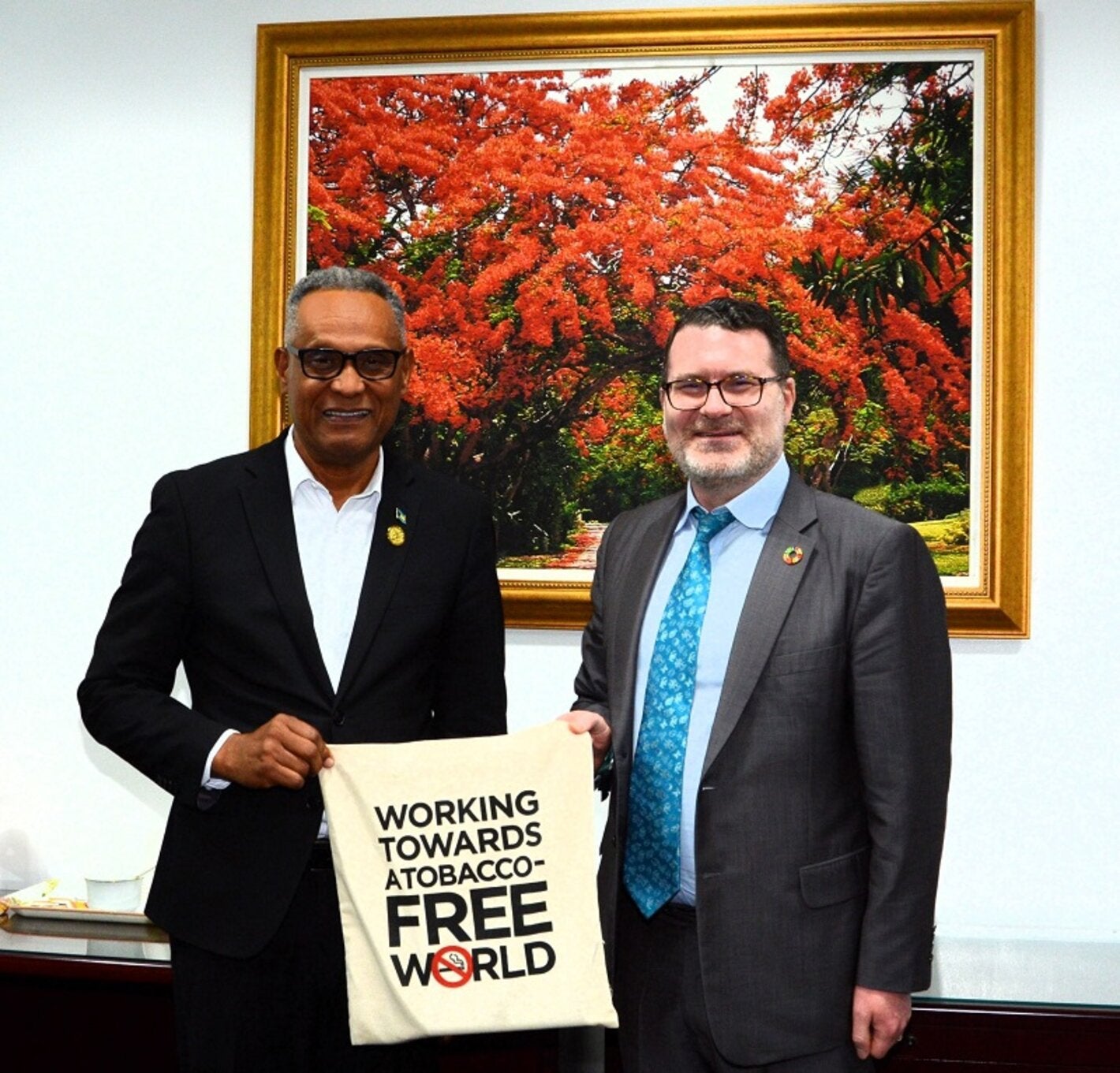
May 24, 2024 — Every 4 seconds, someone in the world dies as a result of tobacco use or exposure to second-hand smoke. That is 22,000 avoidable deaths every day, and 8 million avoidable deaths every year.
These numbers unequivocally illustrate that there is no safe level of exposure to tobacco, and tobacco in any form is dangerous, and potentially deadly. The growing global and local tobacco problem has serious consequences for public health that calls for the widest possible international cooperation, with all countries participating in an effective, and comprehensive response. This is why the World Health Organization’s Framework Convention on Tobacco Control (WHO FCTC) was established in 2005 as the first WHO international treaty that harnesses the combined power of public health promotion and legal approaches for international health cooperation. Recognizing that the enjoyment of the highest attainable standard of health is one of the fundamental rights of every human being, in 2009, The Bahamas became one of the now 183 countries that has ratified the WHO FCTC. The articles of the treaty address measures for the reduction of demand for and supply of tobacco; the protection of the environment; scientific research and information exchange; and other approaches to address tobacco control.
Since ratifying the FCTC, The Bahamas has made some progress in tobacco surveillance using nationally representative surveys among adult and adolescent populations; offering smoking cessation support in hospitals, primary care facilities, and community settings; and increasing tobacco taxation. However, there is still significant work to be done to create a smoke-free future.
According to the 2019 STEPS survey, 17.4 % of adults aged 18-69 years were current smokers, 7.7% smoked every day, and 49.4% of the current smokers used manufactured cigarettes. Although the proportions may seem small, they are significant. Why? Because tobacco smoking is a risk factor for non-communicable diseases (NCDs) like heart diseases; respiratory diseases; cancers of the lungs, stomach, colon, and rectum; strokes; lower respiratory infections; and diabetes; diseases which lead to 75% of all deaths in The Bahamas.
Tobacco use among the youth is as concerning, if not more concerning than use among adults. Globally, there is an escalation in tobacco use among children and adolescents, particularly via electronic nicotine delivery products. Compounded by the very influential marketing strategies of the tobacco industry, the exposure of youth to tobacco at an early age increases their risk of addiction and subsequent illness in adulthood, and also has serious health, social, and economic implications for countries.
Recognizing the substantial risks of tobacco consumption for poor health outcomes over the life course, at the request of the Ministry of Health and Wellness, the WHO FCTC Secretariat, in conjunction with the Pan American Health Organization/ World Health Organization is conducting an assessment of The Bahamas’ compliance with, and progress toward the WHO FCTC. The assessment seeks to measure the level of implementation of interventions for the reduction in tobacco demand and tobacco supply. We are talking about scientifically proven interventions such as monitoring tobacco use and prevention policies, protecting people from tobacco smoke by creating smoke free environments, offering help to quit, warning users and non-users about the dangers of tobacco via packaging and labelling of tobacco products and conducting anti-tobacco national mass media campaigns, enforcing bans on advertisements, sponsorship and promotion, and raising taxes on tobacco.
For this mission, the country has prioritized assessment of specific articles of the WHO FCTC (6, 8, 11, 12, 13, 15, and 16) which focus on price and tax measures, protection from tobacco exposure, packaging and labeling, education and training, advertising, promotion and sponsorship, illicit trade, and sale to minors. Progress on these and other articles requires multisectoral partnerships and strategies to confront tobacco-related harms, build policy coherence; and build on the achievements of the WHO FCTC.
The potential impact of lowered tobacco consumption goes further than improving population health, it also contributes to the lowering of healthcare costs, increasing workforce productivity, improving life satisfaction, improving educational outcomes, and protecting the environment through the reduction of air and plastic pollution. The effects of the tobacco epidemic are much too serious to be ignored. The health and wellbeing of current and future generations depend on the actions we collectively take today. So, I challenge you to harness the power of partnerships across your sectors to save lives and improve global and national public health.
During the 10 -15 minutes that it took for the delivery of these remarks, more than 200 persons would have died due to tobacco use. One life loss due to tobacco use or exposure is one life too many. So, I thank you for being here and encourage all of us to do our part and work together to protect and promote health as a fundamental right for all.
Extracted from Remarks by Dr. Eldonna Boisson
PAHO/WHO Country Representative for The Bahamas and Turks and Caicos Islands



